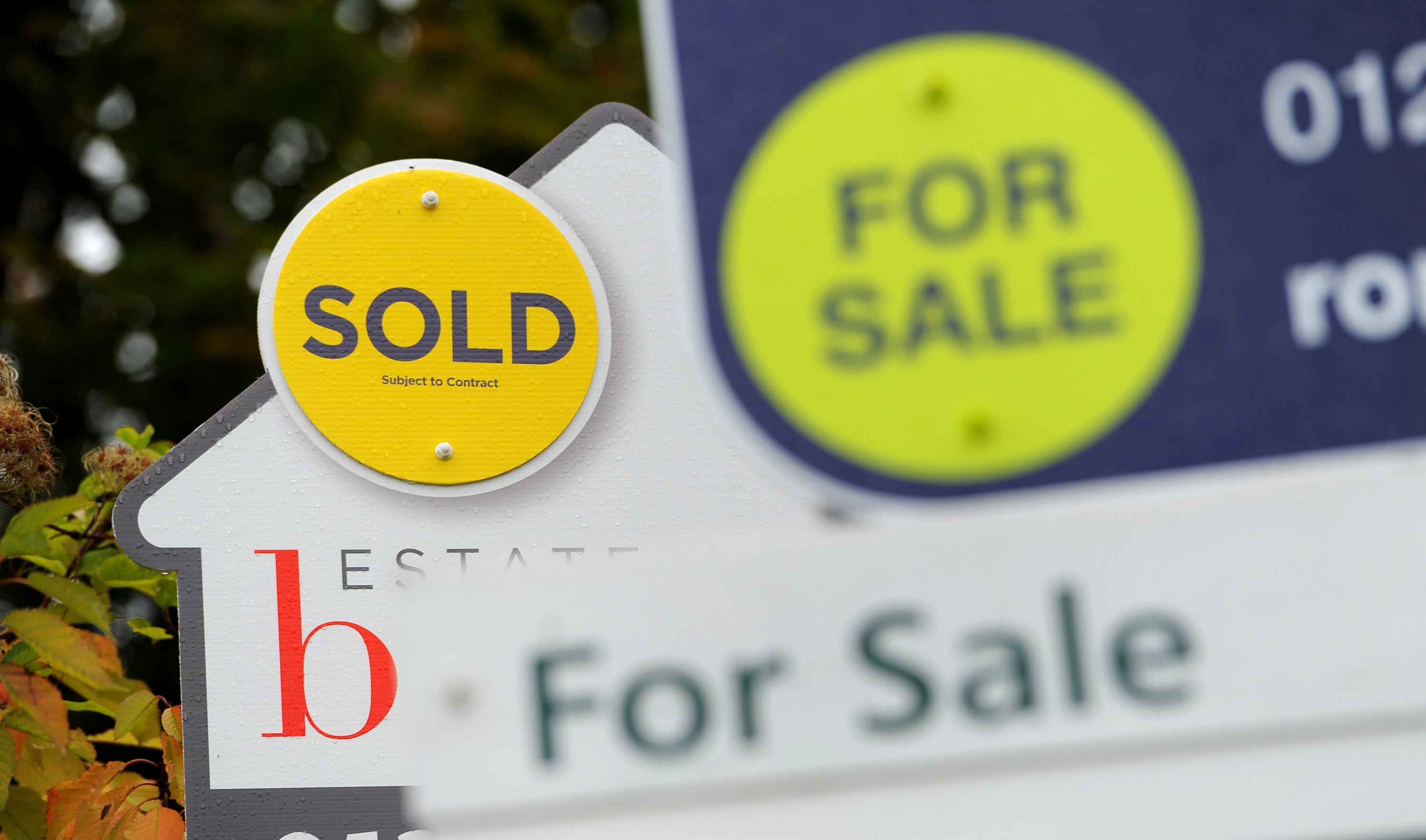Sellers overprice property by 21% as Covid boom continues
Annual house price inflation is now at its strongest level in nearly seven years

Your support helps us to tell the story
From reproductive rights to climate change to Big Tech, The Independent is on the ground when the story is developing. Whether it's investigating the financials of Elon Musk's pro-Trump PAC or producing our latest documentary, 'The A Word', which shines a light on the American women fighting for reproductive rights, we know how important it is to parse out the facts from the messaging.
At such a critical moment in US history, we need reporters on the ground. Your donation allows us to keep sending journalists to speak to both sides of the story.
The Independent is trusted by Americans across the entire political spectrum. And unlike many other quality news outlets, we choose not to lock Americans out of our reporting and analysis with paywalls. We believe quality journalism should be available to everyone, paid for by those who can afford it.
Your support makes all the difference.Ambitious property sellers are listing their homes for prices so inflated that even a runaway housing market can’t stomach paying a fifth more than they are worth, the latest dive into the nation’s property data suggests.
Analysis of the top four house prices indices, as well as official asking price and mortgage borrowing data showed the gap between asking price expectations and final sale price stood at 21 per cent by March this year, the latest figures included the study, even as the original stamp duty deadline briefly put the dampers on activity.
Despite the deadline, which has since been extended until the end of this month when it will begin to taper until September, sales and lettings agent Benham and Reeves found that across the UK, sellers continued to overprice in order to take advantage of a buoyant buyer demand-fuelled market.
At £318,901, the average UK asking price in the first quarter of 2021 was a third higher than the average price at which mortgages were being approved for. The average UK home was also selling for £352,860 during Q1, a 20.7 per cent reduction compared with the average asking price.
In contrast to pre-pandemic trends, sellers in London haven’t engaged in quite the same level of hysteria as the rest of the UK.
With property values in the capital down a little compared with prices at the end of 2020, the Benham and Reeves index shows the average asking price was £616,808 across the capital in Q1.
The average seller was entering the market almost 28 per cent higher than the average price at which buyers were seeing a mortgage approved for (£482,576). With an average sold price of £499,446, homes were also selling for 19 per cent less than the average asking price across the capital.
“It’s now clear that the UK property market started to retract in the run up to the original stamp duty holiday deadline, as previously high levels of buyer activity started to dissipate bringing a decline in the rate of house price growth,” says Marc von Grundherr, director of Benham and Reeves.
“As a result, sellers did have to adjust their price expectations when compared to the previous quarter. This meant the gap between asking and sold prices was at its smallest in over three years. Despite this, they continued to overprice by a considerable margin in the hope of securing a better price than they may have otherwise.
With the government implementing a last gasp extension, there’s no doubting that the market has seen a fresh head of steam,” he adds. “We can expect buoyant levels of house price growth to ensue over the second and third quarter of this year.
“Now that further insurance measures have been added in the way of 95 per cent mortgages and a refreshed Help to Buy scheme, we could see the market continue to perform very strongly even once the stamp duty holiday clock has expired.”
It’s now clear that the UK property market started to retract in the run up to the original stamp duty holiday deadline
In fact, even the latest house price data from Halifax, whose data is often at the more conservative end of the UK’s major property indices, reported the average value hit a record high for the third consecutive month in May.
A typical property now comes in at £261,743 it calculates, up by 1.3 per cent in a month and 9.5 per cent over the last year, even with the impending changes in stamp duty treatment.
Annual house price inflation is now at its strongest level in nearly seven years, Halifax reports, with Wales continuing to show the strongest price growth.
"May may have been a washout, but the property market was white hot,” notes Jonathan Samuels, CEO of the property lender, Octane Capital.
"On one hand you have a stampede of first-time buyers who have been empowered by the Government’s mortgage guarantee scheme, on the other hand you have landlords who are proving highly active in anticipation of increased demand as prices spiral out of many people’s reach.
"London is lagging for the simple reason that it has outperformed for so long. Even the capital has to have a reality check now and again.
"There is growing talk of a bursting of the bubble, but the property market has defied logic time and again. That said, when the furlough scheme ends, there is without doubt the potential for a correction."



Join our commenting forum
Join thought-provoking conversations, follow other Independent readers and see their replies
Comments